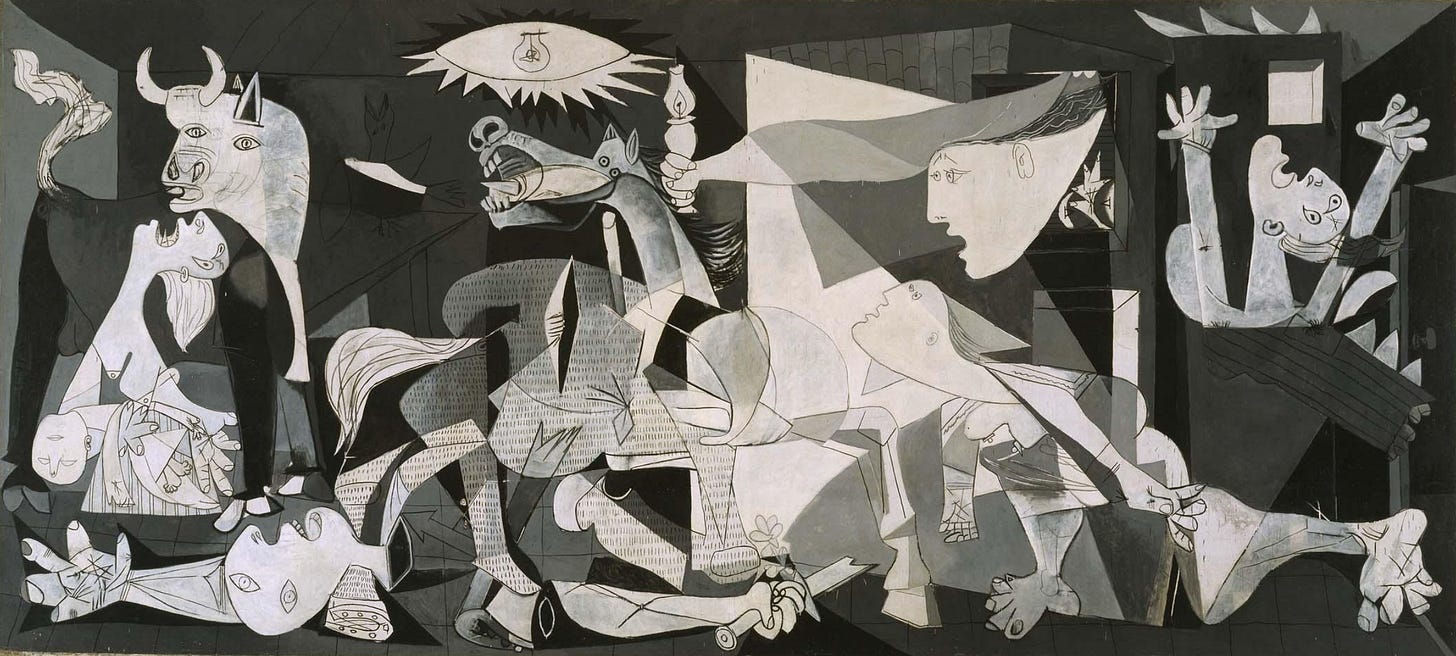We waged war in Afghanistan – twenty years of war, thousands of American lives lost, tens of thousands of Afghan lives lost, over 2 trillion dollars spent – but we did not wage peace. We went, we fought, we supported a corrupt Afghan government almost as abusive to the people there as the Taliban had been, we droned, we bombed, we tried to build an army of some of the historically best fighters in the world in the image of the American armed forces (so arrogant are we), we tried to build an Afghanistan in the image of our own country (so delusional are we) – and yeah, we did some good things too. In the end, we aren’t just the last in a long line of empires defeated in Afghanistan. Even worse, we’re the last in a long line of empires that raped and plundered it before we left.
God help us, if we don’t learn from this.

So how did this happen, you might ask? Well funny you might ask, given that for twenty years the people who were supposed to ask, did not. Congress never declared war in Afghanistan, in direct contradiction to its mandated role in the US Constitution. Congressional Oversight Committees pretty much made a joke of their role, given that they apparently did little more than ask some tough questions of the generals and pretty much accept the answers they were given. Mainstream media, despite the fact that some brave and brilliant journalists were on the ground in Afghanistan, basically abdicated any role of consistent public edification about the war. TV media – way too cozy with the corporate overlords selling military equipment that was the chief cash cow in this hideous blood circus – hardly even airs foreign correspondents anymore, so wedded are they to reporting whatever pablum Pentagon and White House spokesmen feed to them and acting like they got big scoops.
Then there’s the CIA and the White House, of course, which surely had to know that Pakistan created the Taliban, Karzai worked for the Taliban and helped usher them into Afghanistan in the first place, and that neither government was a reliable partner in anything even approaching a righteous war (not that we were). It’s odd we consider Pakistan an ally, given the fact that surely US intelligence knew the high probability they were still arming the Taliban; in part, it’s to be assumed, with military equipment that we in fact had given them, which would mean American soldiers were often killed with arms that we ourselves provided. (See Sarah Chayes The Ides of August). Tell me again how they got to Kabul so quickly? And then there’s the fact that our president (who I applaud for knowing the farce had to end), still promotes the hard-to-buy idea that he inherited a deal from Trump that he just had to follow – when that deal was not a treaty, it had not been ratified, and he could have changed the terms of the departure if he had wanted to. Having the military leave before more people had a chance to evacuate was not just a “mess;” it was a continuation of the same lack of humanitarian concern for the people of Afghanistan that had marked our stay there for twenty years.
For this information and more: next week I’ll post my extraordinary interview with Sarah Chayes, who lived in Afghanistan for the better part of a decade and was a special advisor to Chairman of the Joint Chiefs of Staff Mike Mullen.
The more we learn about what really went on in Afghanistan over the last twenty years, the more the story reads like a crime novel. But it’s not fiction, and it’s not exciting, to have to face who some of the criminals were. The American people were played for fools, and the only way our soldiers did not die in vain is if we commit to being fools no longer. No more farming out our thinking, or our conscience, to those who have proven themselves untrustworthy protectors of our trust. They failed. We all failed. In the words of Abraham Lincoln, “… it is the duty of nations as well as of men to confess their sins and transgressions in humble sorrow.” If ever there was a time to be humble, it is now. If ever there was a time to be sorrowful, it is now. If ever there was a time to be committed to waging peace instead of war, it is now.